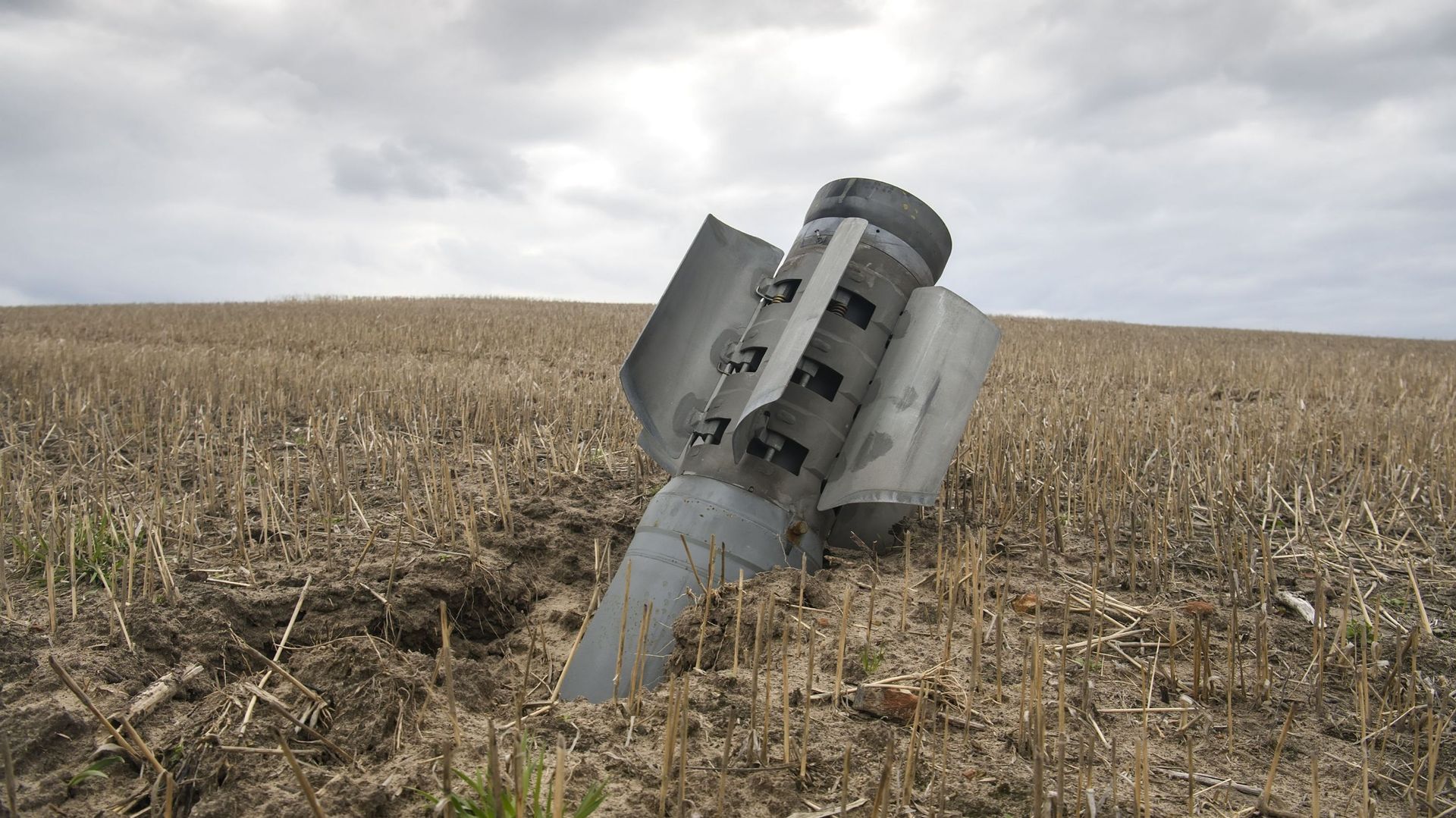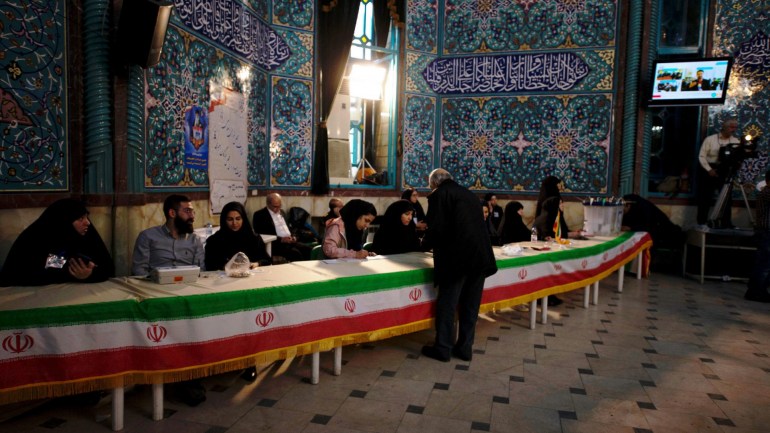
The war on Ukraine “the breadbasket of the world” has put food security firmly back on the international agenda in a big way.[1] The reason for this is that Ukraine and Russia are two of the biggest agricultural powerhouses in the world. After Russia invaded Ukraine, grains exports were blocked and today several vulnerable countries are facing terrific suffering with aggravated food insecurity. According to the United Nations (UN), the war in Ukraine has put 45 African and poorest countries at risk of a “hurricane of hunger”.[2]
As solidarity is at the heart of EU values and food security is a concept that is carved into European Treaties, the EU and its member states have been fully engaged to cooperate with its worldwide partners to tackle negative impacts on food security. The EU has responded with a wide range of strategic decisions at the same time when Russia is using food as a weapon of war in Ukraine and blaming the EU and its allies for food insecurity.
Russia’s War on Global Food Security
Russia’s invasion of Ukraine is escalating the world food crisis as part of a premeditated campaign to foment famine. It also put pressure on the Western coalition backing Ukraine’s government a campaign that the EU has denounced as a war crime. This scenario could remind what Russia has already done with European countries with its natural gas exports.[3]
Since February 2022, Russia has been blocking all of Ukraine’s Black Sea ports, via which all of its huge exports were being transported. It was estimated that 20 million tons of Ukrainian grain were prevented from reaching other parts of the world.[4] And yet, there is currently no sign of an opening at the ports. World Food Program (WFP) executive director David Beasley recently issued a warning: “When a country like Ukraine that grows enough food for 400 million people is out of the market, it creates market volatility, which we are now seeing”.[5] This food crisis has been also made worse by Russia’s bombing and burning of grain storage facilities in the eastern and southern regions of Ukraine, as well as the theft of hundreds of thousands of tons of grain and exportation of that grain, largely to its partner Syria, with its ships.
It’s crucial to underline that 30% of the wheat and maize consumed worldwide is produced in Russia and Ukraine and more than 70% of its sunflower oil are significant grain suppliers. [6] Consequently, since Russian forces’ criminal activities on Ukraine took place, global food prices have soared while exports have fallen. Above all, the Food and Agriculture Organization (FAO) of the UN projects that, in 2023, there will be an increase of nearly 19 million people who are undernourished as a result of the anticipated shortfall in food exports from Ukraine and Russia, assuming that other countries do not increase food exports as a result.[7] Indeed, to counter the rise of prices domestically and avoid political tensions, food export restrictions have already been put in place by big grain producers like Russia, and with the global grain deficit that is going to get worse other nations are likely to follow.[8]
Moscow has started a grain war, creating a worldwide food crisis and it’s doing so at a time when millions of people, mainly in the Middle East and Africa, are already in danger of going hungry.
Before the conflict in Ukraine, most Middle Eastern and African nations were already dealing with skyrocketing food prices brought on by harsh weather conditions, instability brought on by terrorism, and the Covid-19 outbreak, which slowed down production and affected international supply networks. Global food costs have reached unprecedented highs since Russia’s invasion.
Given that they are also the main importers of Ukrainian and Russian wheat and have serious problems with food security. In 2020, 90% of Russia’s $4 billion in exports to Africa was constituted of wheat. Ukraine came in second with $3 billion in exports, with wheat accounting for 48% and maize for 31% of that total.[9] Some countries are expected to be more severely affected than others in the short term. For instance, in Lebanon, 80% of the 630 000 tons of wheat that were imported in 2020 came from Ukraine. In a nation where supplies of wheat are said to be limited to just a few weeks’ worth, the interruption to this supply and the anticipated price hike is alarming. Especially, after the explosion of the port of Beirut where 85% of the country’s grain reserves.[10]
In this context of global food insecurity, the European Commission approved increasing food security assistance that it claims is required due to the conflict between Russia and Ukraine. In late June, the Commission suggested allocating €600 million taken from the European Development Fund reserves for aid to the most vulnerable nations in the Pacific, the Caribbean, and Africa. A support that will cover several sectors including humanitarian assistance, food production, and resilience of food systems along with Macro-economic support.[11]
This new fund will supplement the global humanitarian aid that has already been mobilized as part of the EU’s Global Food Security Response to help address the food crisis in the regions affected by the ongoing war. Additionally, the declaration coincides with European Development Days, during which the EU also committed to providing 100 million Africans with renewable energy by 2030. Strong European commitments aim to prove to the world that the only reason for the global food insecurity is Russia and not the West as the Kremlin’s propaganda declares.
Kremlin’s Blame Game Against the West
Russia and western countries have been playing the finger-pointing game about who is to blame for shortages and rising costs of food as the impacts of the war are felt on the global markets.[12]
In May 2022, US Secretary of State Antony Bliken blamed Russia for using food as a weapon of war. Later on, at UN Security Council the EU joined the US statements in pushing the blame on Russia for the world’s food shortage, prompting the Russian UN ambassador to leave the room. During this session EU Council chief Charles Michel mentioned that the Kremlin is using food insecurity as a “stealth missile”.[13] Undoubtedly, food insecurity has been intensified because of Russia’s war of choice. Indeed, it has not risen as the Russian government has been claiming, by sanctions that the EU and its allies have charged regarding Moscow’s aggression on Ukraine. Food security was already fragilized before the war, and Russia’s war, blockade, and stealing of grain have all worsened this situation globally.
Nevertheless, Moscow keeps denying its responsibility for global food insecurity. It is “absolutely false,” according to Vassily Nebenzia, Russia’s ambassador to the UN, that his nation is to blame for the world’s long-term food shortage.[14] In addition, the country holds attributing the impeding food crisis to the West, citing the sanctions it has been subjected to as a result of the conflict.
Moscow claims that because of Western sanctions against its insurance, banking, and shipping sectors. Russia is unable to export food and fertilizer since foreign shipping companies are scared off from doing so. To send grain to global markets, Russian officials say that sanctions must be repealed. “If our partners want to reach a solution, then problems associated with lifting those sanctions placed on Russian exports must also be solved” stated Andrei Rudenko, the Russian Deputy Foreign Minister. [15]
These Russian beliefs have been backed by a disinformation campaign aiming to conceal the origin of the food crisis from the world. By blaming the West and Ukraine, Russian government representatives, state-funded media along with Moscow-aligned proxy “fake-news” actors are trying to divert attention away from Russia’s involvement in the deepening of global food instability. Consequently, their misinformation campaign is mainly targeting the Middle East and Africa, regions which have been hardest hit by the food crisis.[16]
To empower its position, Russia has amplified statements made by African leaders as part of its global disinformation strategy. In late May 2022, Macky Sall, the head of the African Union, claimed that sanctions had made the food crisis worse and cautioned authorities at a meeting of the European Union that stopping large Russian banks from using the SWIFT system would make it harder for African nations to buy Russian grains and fertilizers.[17] “When the SWIFT system is disrupted, it means that even if products exist, the payment becomes complicated, if not impossible”.[18] Recall that a common statement on cooperation towards 2030 was the outcome of the sixth EU-African Union summit held in Brussels one week before Russia’s war on Ukraine.
In this regard, to refute the Russian narrative, European governments are engaging with leaders on the African continent more and stepping up their information operations. In May, European leaders urged African nations not to fall for a Kremlin-led misinformation campaign that blames Western sanctions against Russia for an approaching global food catastrophe. In addition,
EU officials have urged a more active strategy to counter Russian disinformation and propaganda, however, the bloc has so far lacked the resources to do so since the EU’s diplomatic service’s East StratCom Task Force, is underfunded and not enough supported. Therefore, the EU’s new Strategic Compass is expected to call for several actions, including strengthening EU Delegations abroad and enhancing member states’ abilities to identify and analyze malicious misinformation.[19]
The Challenges Ahead for the EU and Its allies
Russia’s “hunger plan” is intended to function on three levels. The first aim of its plan is to destroy Ukraine by shutting off exports, then by bringing in refugees from North Africa and the Middle East, regions typically supplied by Ukraine, it is an effort to sow instability in the EU. And lastly, a backdrop of global hunger is required for a Russian propaganda operation against Ukraine. When the food riots spread and malnutrition grows, Russian media will be able to accuse Ukraine and demand the recognition of Russia’s territorial gains in Ukraine as well as the lifting of all EU and western sanctions.
Moreover, the debate over whether specific sanctions relief should be considered if it will prevent famine was launched at the EU level, especially in times when the crisis in Ukraine continues and food shortages get worse. This is why the EU and its allies have ensured during the last G7 meeting that their sanctions on Russia do not and will not affect foodstuffs.[20]An engagement was taken at the time when the Kremlin is attempting to create controversy to get the sanctions withdrawn and is determined to use the prospect of world starvation as a negotiating tool in any future peace negotiations.
Nearly 193 million people in 53 nations and territories have severe food insecurity and need immediate assistance even before Russia invaded Ukraine. The issue is being drastically made worse by Russia’s attack.[21] The conflict, and the consequences of climate change and the Covid-19 pandemic combined “threatens to tip tens of millions of people over the edge into food insecurity followed by malnutrition, mass hunger, and famine” said Antonio Guterres Secretary-General of the UN. [22] Hence, it’s essential to emphasize that the key for the EU and its allies is to keep taking preventative measures, as what is currently an accessibility problem could turn into an availability concern in the long term.
_______________________________
[1] https://www.lemonde.fr/en/economy/article/2022/05/12/war-in-ukraine-threatens-the-world-s-breadbasket_5983258_19.html
[2] https://theconversation.com/too-many-people-not-enough-food-isnt-the-cause-of-hunger-and-food-insecurity-179168
[3] https://www.ft.com/content/c1e64553-7451-4462-a9c4-8ec03f1d5536
[4] https://www.consilium.europa.eu/en/infographics/how-the-eu-is-helping-address-the-global-food-crisis/
[5] https://www.atlanticcouncil.org/in-depth-research-reports/issue-brief/russias-war-on-global-food-security/
[6] https://www.euronews.com/2022/06/19/global-food-crisis-looms-as-ukraine-struggles-to-export-its-grain-after-russian-invasion
[7] https://www.abc.net.au/news/2022-06-15/how-does-the-war-in-ukraine-impact-food-supply/101151574
[8] https://www.atlanticcouncil.org/in-depth-research-reports/issue-brief/russias-war-on-global-food-security/
[9] https://newint.org/features/2022/06/07/ukraine-war-has-hit-africa-food-security
[10] https://www.sipri.org/commentary/blog/2022/war-breadbasket-impacts-war-ukraine-food-security-and-stability-lebanon
[11] https://reliefweb.int/report/world/food-security-eu-step-its-support-african-caribbean-and-pacific-countries-response-russias-invasion-ukraine
[12] https://politicstoday.org/global-food-crisis-russia-ukraine-and-the-west/
[13] https://www.brusselstimes.com/world-all-news/235911/ukraine-grain-crisis-the-west-blames-russia-for-food-insecurity
[14] https://www.dw.com/en/russia-weaponizes-food-security-us-tells-un-meeting/a-61865923
[15] Ibid.
[16] https://www.state.gov/disarming-disinformation/russias-disinformation-cannot-hide-its-responsibility-for-the-global-food-crisis/
[17] https://www.politico.eu/article/europe-warns-africa-against-russias-food-crisis-propaganda/
[18] https://www.france24.com/en/africa/20220602-african-union-head-senegal-s-macky-sall-to-speak-to-putin-in-russia-on-friday.
[19] https://www.euractiv.com/section/global-europe/news/eu-steps-up-efforts-to-debunk-putins-food-security-propaganda/
[20] https://www.g7germany.de/resource/blob/974430/2057824/b4c9113bec507f0bd4b0389f6ac15ea7/2022-06-28-statement-on-global-food-security-data.pdf?download=1
[21] https://reliefweb.int/report/world/food-security-eu-step-its-support-african-caribbean-and-pacific-countries-response-russias-invasion-ukraine



